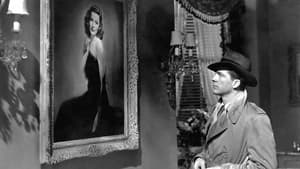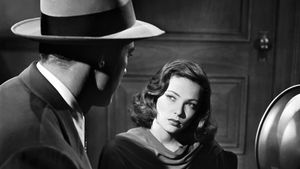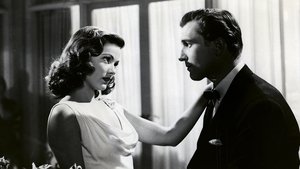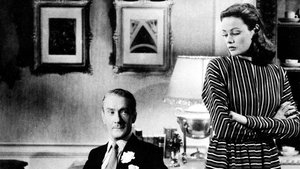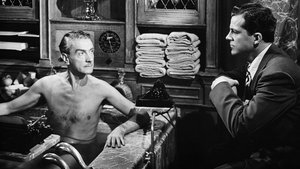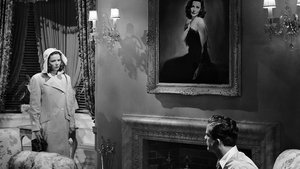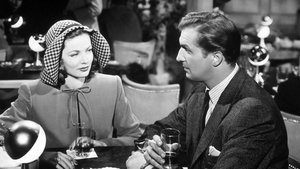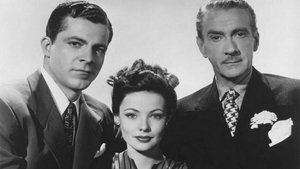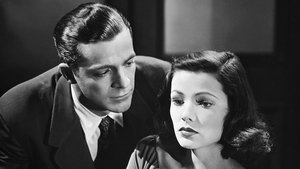Video Sources 0 Views
- Watch trailer
- Laura 1944 Colorized

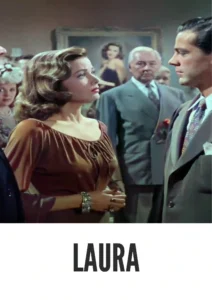
Synopsis
Table of Contents
Toggle
Step into the stylish and shadowy world of Laura, a mesmerizing film noir mystery from 1944, now brilliantly colorized for a viewing experience that adds a new layer of depth to this timeless classic. Directed by Otto Preminger, Laura weaves a complex tale of love, obsession, and murder set against the backdrop of New York City’s high society. This HD download offers both longtime fans and new viewers a chance to appreciate the film’s sophisticated visuals and intricate plot in stunning detail. For those who appreciate the elegance of classic cinema and the intrigue of a well-crafted mystery, this colorized version of Laura is a must-see. Other titles for the movie include Laura.
Laura centers on the investigation into the murder of the beautiful and enigmatic Laura Hunt (Gene Tierney). Detective Mark McPherson (Dana Andrews) is assigned to the case, and as he delves deeper into Laura’s life, interviewing her friends, colleagues, and lovers, he finds himself becoming increasingly obsessed with the deceased woman.Through flashbacks and testimonies, McPherson pieces together the puzzle of Laura’s life, encountering a cast of intriguing characters, including her possessive mentor Waldo Lydecker (Clifton Webb) and her charming but unreliable fiancé Shelby Carpenter (Vincent Price). As McPherson’s fascination with Laura grows, he begins to suspect that her killer is someone close to her, and the truth proves to be more shocking than he could have imagined. With its stylish direction, memorable performances, and haunting score, Laura is a classic of the film noir genre that continues to captivate audiences today.
The film boasts a stellar cast, each bringing depth and nuance to their roles:
- Gene Tierney as Laura Hunt
- Dana Andrews as Detective Mark McPherson
- Clifton Webb as Waldo Lydecker
- Vincent Price as Shelby Carpenter
- Judith Anderson as Ann Treadwell
Laura is a quintessential film noir, characterized by its dark and atmospheric cinematography, complex plot, and morally ambiguous characters. It also incorporates elements of mystery and romance, creating a compelling and emotionally resonant cinematic experience.
Released in 1944, Laura reflects the mood and anxieties of post-World War II America, with its themes of deception, betrayal, and the disillusionment of the American Dream. The film is notable for its portrayal of the femme fatale, a recurring figure in film noir, embodied by the character of Laura Hunt. While Laura may not be a traditional femme fatale in the sense of being overtly manipulative or evil, her beauty and allure have a profound effect on the men around her, ultimately leading to tragedy. Laura helped solidify the conventions of film noir and remains a significant work in the history of American cinema.
This colorized version of Laura has been meticulously crafted, employing advanced digital techniques to breathe new life into the classic black and white film. The colorization process involved careful consideration of the film’s original lighting, set design, and costume design, ensuring that the colors chosen enhance the mood and atmosphere of each scene. Sophisticated algorithms were used to analyze the grayscale tones and assign appropriate colors, resulting in a visually stunning and immersive viewing experience. The colorization aims to honor the film’s original artistic vision while making it more accessible and engaging for contemporary audiences.
- : Otto Preminger
- : Jay Dratler, Samuel Hoffenstein, Betty Reinhardt
- : the novel by Vera Caspary
- : Joseph LaShelle
- : Louis R. Loeffler
- : 20th Century Fox
- : 20th Century Fox
- : 88 minutes
- : MP4
- : HD (1080p)
- : Compatible with various devices, including smartphones, tablets, computers, and smart TVs.
Laura is widely regarded as a masterpiece of film noir, praised for its stylish direction, sharp dialogue, and memorable performances. The film was a critical and commercial success upon its release and has since been recognized as one of the greatest films ever made. Its influence can be seen in countless subsequent films and television shows, and it continues to be studied and admired by film scholars and enthusiasts alike.
- : What is Laura about?
- A: Laura is a film noir mystery about a detective who becomes obsessed with the murder victim he is investigating.
- : Is Laura (1944) considered a classic film?
- A: Yes, Laura is widely regarded as a classic of the film noir genre.
- : Is this version of Laura colorized?
- A: Yes, this version has been professionally colorized to enhance the viewing experience.
- : What makes Laura a significant film?
- A: Laura is notable for its stylish direction, complex plot, and memorable performances, as well as its exploration of themes of love, obsession, and betrayal.
- : What is the download format?
- A: The download format is MP4, ensuring compatibility with most devices.
- : What resolution is the download?
- A: The resolution is HD (1080p), providing a high-quality viewing experience.
Experience Laura Today!
